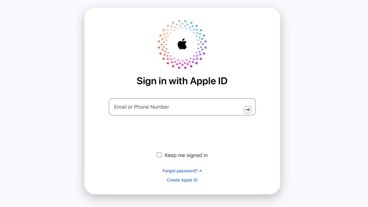S3 Graphics granted partial victory in patent case against Apple
ITC judge James Gildea found Apple guilty of infringing on three claims from two patents regarding "Fixed-rate block-based image compression with inferred pixel values," CNet reports. The initial decision will be reviewed by a six-member commission, with a final decision expected in November.
"S3 Graphics is pleased to win this portion of the ITC investigation," S3 Graphics CEO Dr. Ken Weng said in a statement.
The Fremont, Calif.-based company filed suit against Apple last May, accusing the company of violating four image-related patents. In January, Apple countersued with its own patent-related suit.
The four patents cited in S3's original 2010 complaint are:
- U.S. Patent No. 7,043,087: Image processing system
- U.S. Patent No. 6,775,417: Fixed-rate block-based image compression with inferred pixel values
- U.S. Patent No. 6,683,978: Fixed-rate block-based image compression with inferred pixel values
- U.S. Patent No. 6,658,146: Fixed-rate block-based image compression with inferred pixel values
Earlier this week, the ITC issued a mixed decision in a patent case brought by Kodak against Apple. The commission found that the iPhone does not violate some of Kodak's key digital photography patents, though it did find Apple guilty of infringing two other patents. The decision also sent part of the ruling to an administrative law judge for review.
Apple has become the world's most-sued technology company in recent years and has shored up its in-house and outside legal teams to protect itself.
On Thursday, a consortium of companies including Apple, Microsoft and Research in Motion won an auction for 6,000 patents from bankrupt Canadian telecommunications company Nortel. The group paid $4.5 billion for the patents in a defensive move meant to block Google, other competitors and patent trolls from gaining leverage in a so-called intellectual property "arms race" to 4G wireless technology.
 Josh Ong
Josh Ong










 Mike Wuerthele
Mike Wuerthele

 Malcolm Owen
Malcolm Owen
 Chip Loder
Chip Loder

 William Gallagher
William Gallagher
 Christine McKee
Christine McKee
 Michael Stroup
Michael Stroup







19 Comments
S3? Their cards sucked. Are they still in business?
How the hell is that even a Patent? Seriously the Patent Office really needs to thin down, and a lot. I'm not saying this because I'm a fan-boy, I'm saying it because its true. Last year Microsoft filed Patent Infringement over the Search Function. They have/had a Patent on the SEARCH Function. Purely the fact that there exists today a Patent on the Search Function is simply ridiculous.
The existence of Patents in the US wastes loads of Tax Payer's Money in Court each year on ridiculous Patent Infringement claims. Its become something of a crude fashion to sue Apple. Need/want cash? Sue Apple, big fat settlement check.
ITC would never dare ban Apple Product Import. Its not an opinion, its almost a fact. The US Army is using iPhones and iPads, there's no way they'd just let their supplier get cut off. Besides them, the mass riots from the Fan Clubs would cause the Order to be overturned anyway, which would mean ITC simply wasted a load of time and Tax Payer's Money banning them in the first place.
I think Apple should just buy S3. They do hold quite a lot of patents.
Anyway S3 texture compression is nearly a industry standard, Apple has no excuse to not paid. Although i wonder why this isn't something PowerVR related instead.
I think Apple should just buy S3. They do hold quite a lot of patents.
Anyway S3 texture compression is nearly a industry standard, Apple has no excuse to not paid. Although i wonder why this isn't something PowerVR related instead.
Well they managed to get half the patents preliminarily excluded, so it may well pay off for them - if these patents got included in any actual industry standards like OpenGL then S3 will have to license them under FRAND terms, so every patent Apple can avoid licensing is some money saved.
How the hell is that even a Patent? Seriously the Patent Office really needs to thin down, and a lot. I'm not saying this because I'm a fan-boy, I'm saying it because its true. Last year Microsoft filed Patent Infringement over the Search Function. They have/had a Patent on the SEARCH Function. Purely the fact that there exists today a Patent on the Search Function is simply ridiculous.
The existence of Patents in the US wastes loads of Tax Payer's Money in Court each year on ridiculous Patent Infringement claims. Its become something of a crude fashion to sue Apple. Need/want cash? Sue Apple, big fat settlement check.
ITC would never dare ban Apple Product Import. Its not an opinion, its almost a fact. The US Army is using iPhones and iPads, there's no way they'd just let their supplier get cut off. Besides them, the mass riots from the Fan Clubs would cause the Order to be overturned anyway, which would mean ITC simply wasted a load of time and Tax Payer's Money banning them in the first place.
Laws were created to be impartial (or try to be as best it can). It is designed to be fair for everyone (theoretically). Whether a company is affiliated with the US govt or not is besides the point.
This is the ITC that we are talking about. It doesnt factor in its use of iPads and iPod in its decision making process. That would make it biased.
If you think back in history, had people not invented ( and later ) patented obvious things like "Search" or blue ball or napkin or candy wrapper, this world would not be the same as it is today. There are patents for shades of colors..even Apple's patent ("trade dress" to be more exact which is an extension of a patent) for "rounded corner edges" in a mobile device.
The "appropriateness" of a patent is besides the point here.